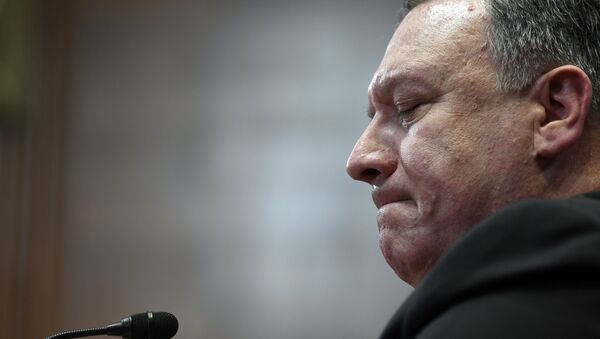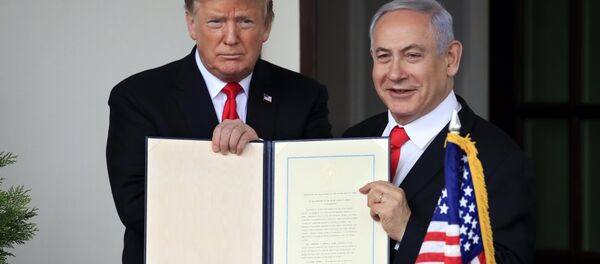In a closed-door meeting with Jewish leaders, Pompeo conceded that the plan might be rejected, admitting that “the big question is can we get enough space that we can have a real conversation about how to build this out,” according to an audio recording of the private meeting obtained by The Washington Post.
“It may be rejected. Could be in the end, folks will say, ‘It’s not particularly original, it doesn’t particularly work for me,’ that is, ‘it’s got two good things and nine bad things, I’m out,’” Pompeo reportedly said.
The unveiling of the plan has been repeatedly delayed, a point Pompeo noted.
“This has taken us longer to roll out our plan than I had originally thought it might — to put it lightly,” he said at a meeting on Tuesday of the Conference of Presidents of Major American Jewish Organizations, a New York-based group that addresses concerns of the Jewish community.
He also recognized the popular notion that the agreement will be one-sided in favor of the Israeli government. “I get why people think this is going to be a deal that only the Israelis could love,” he said. “I understand the perception of that. I hope everyone will just give the space to listen and let it settle in a little bit.”
Pompeo told the group he is kept closely abreast of the proposal, including a game plan for what to do if Israel proceeds to annex territory in the West Bank. “I have seen what I believe are all of the details of what it is we are going to roll out,” he said. He also indicated that the State Department had given “quite a bit of consideration” to what it would do if the plan “doesn’t gain traction.”
“I don’t want to call it failing,” he said. “Call it whatever. I fail a lot, so it’s not about not using a word like that.”
The contingency planning includes how to respond if the Israeli government decides to annex territory in the West Bank, a move many believe would be the final death knell to a two-state solution. Earlier Israeli President Benjamin Netanyahu pledged to annex Israeli settlements in the West Bank if he won the election, a move considered illegal by much of the international community. If Israel did go ahead with annexation, the administration would then consider “what would be the best ways to achieve the outcomes that we think are in America and Israel’s best interests,” Pompeo said.
The Secretary of State conceded that “everyone will find something to hate about the proposal” but noted that everyone, including the Palestinians, “will find something that they say that’s something to build upon.”
US President Trump announced a plan to solve the decades-old conflict, entrusting his “deal of the century” to his son-in-law, Jared Kushner, and former lawyer Jason Greenblatt. However, the most recent actions taken by the US have all been opposed by the Palestinians, including recognizing Jerusalem as Israel’s capital without a final status agreement, cutting funding to the Palestinian Authority and the UN refugee agency that serves it, forcing its diplomatic office in Washington to close, and recognizing Israeli sovereignty over the Golan Heights. Palestine has repeatedly expressed the opinion that the White House plan is inevitably biased against them.
READ MORE: Mike Pompeo, Jared Kushner to Attend 'Secret World Order' Meeting — Report
In a recent speech broadcast on Palestine TV recently, Palestinian Authority President Mahmoud Abbas rejected both the “deal of the century” and the Trump administration's upcoming economic summit for the Palestinians in Bahrain, noting that Palestinian officials will boycott the summit in Bahrain, where the plan is to be rolled out.



